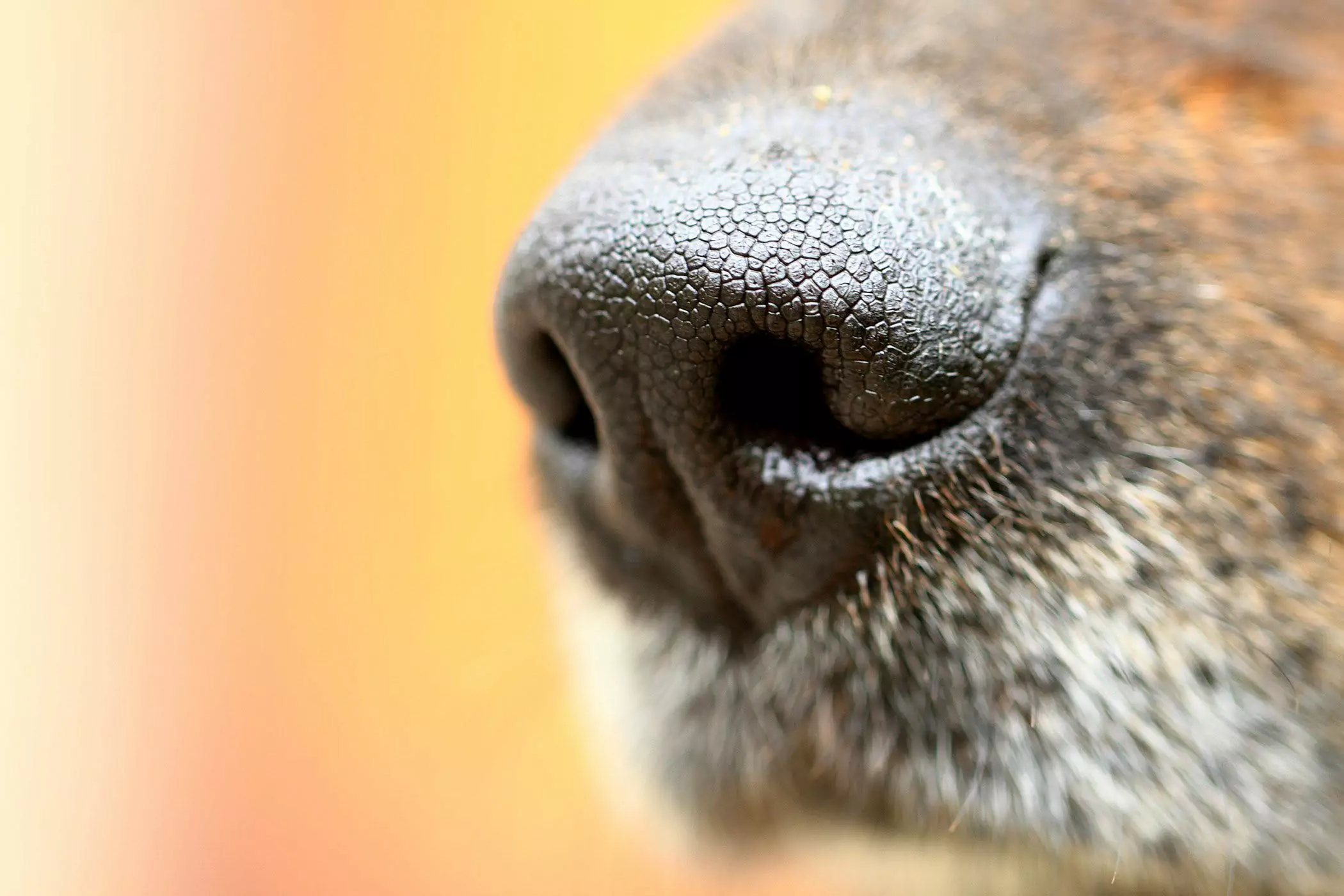Are eggs good for dogs? What are the benefits of eggs for dogs?
2022-06-17
Eggs as a cheap and highly nutritious food often appear on our table, and unknowingly eggs have become one of the most common foods, so is it suitable for dogs to eat eggs?
The answer is yes, eggs are a nutritious food for dogs, but only if the owner does not add salt, onions, or other ingredients that are harmful to dogs when cooking eggs. The next step is to take owners to fully understand what kind of food eggs are for dogs.
I. What are the benefits of eggs for dogs?
The biggest benefit is that they are nutritious.The biggest benefit of course is that they are nutritious. Eggs contain a lot of protein, fatty acids, and essential amino acids, as well as vitamin A, vitamin B12, folic acid, iron, selenium, and riboflavin, which not only provide energy for your dog but also help improve your dog's skin and coat and strengthen your dog's teeth and bones.
1, the high nutritional value of eggs
Egg yolk is rich in fat, including neutral fat, lecithin, and cholesterol; it is also rich in calcium, phosphorus, iron, and other minerals; it also has protein and vitamins, which has a comprehensive nutritional composition.
2, can enhance the dog's physical fitness
The lecithin in eggs can promote liver cell regeneration and promote the metabolism of the dog's body, which is good nutritional food for dogs in the growth period.
3, can promote dog brain development
The lecithin in the egg yolk can be digested by the dog to release choline, which reaches the brain through the bloodstream and plays a role in promoting brain development in puppies and also has a role in protecting intelligence, and enhancing memory.
4, can promote the growth of dog hair
Eggs can promote the dog's hair generation, nourishing the dog's coat, especially long-haired dogs should eat more egg yolks to maintain the coat of the whole body. It is generally recommended that dogs eat 2 to 3 eggs per week to meet the body's nutritional needs.
5銆丒nrich the taste of food
Dogs usually eat only dog food will be very tasteless, so dog food, vegetables together with a mix of food, is conducive to improving the dog's appetite, but also more comprehensive nutrition.
6, can help the dog soft hair.
I believe that many pooper scoopers have a hobby, that is, jerking off the dog, you can think about it, is their dog hair soft when jerking up cool? The fact is that you can find a lot of people who are not able to get a good deal on a lot of things. The answer is the former.
The eggs are rich in yolk phosphorus, the benefit of this element is that it can improve the quality of the animal's hair. If dogs eat some eggs in moderation, then their hair will become more supple, and the color will become better.
7, can help dogs to strengthen their muscles.
If you know some friends who love fitness, then you will find that they will always go to add a few eggs to their daily meals. This is because the eggs contain a lot of protein.
And through school tells us that protein can promote muscle synthesis, and help muscle growth, to achieve the purpose of muscle building and fitness.
The dog itself is a species with a great demand for activity, for muscle development, this piece of nature also has a great demand. If you can feed them eggs in moderation, you can help your dog's muscles grow and develop better.
8, can help the dog's digestion.
Dogs need to face many diseases in their lives, some of which are life's great difficulties, such as distemper and microscopic, if you can not overcome these diseases, the dog may lose their lives.
Some diseases are not fatal, but once they appear, they can easily bring great trouble to the dog's life, such as indigestion.
If your dog has indigestion, you can try adding a little egg yolk to your dog's food, in addition to the usual medical treatment. This is because eggs also contain a certain amount of riboflavin, which can be very helpful in improving digestion.

The dangers of raw eggs for dogs
Dogs in the wild used to raid bird nests to steal their eggs and eat them raw, but for dogs at home now, eating raw eggs or eating uncooked eggs can seriously affect their health, and owners must cook eggs before giving them to their dogs.
A small percentage of eggs contain salmonella, a virus that can be very threatening to both people and dogs. If a dog eats raw eggs directly and they happen to contain salmonella, the dog will suffer from food poisoning that can cause a range of symptoms, including vomiting, fever, diarrhea, and loss of appetite.
Egg whites also contain a protein called ovalbumin, which is not a harmful substance, but once a dog consumes too much of it, it can interfere with the normal functioning of the dog's biotin and impede the metabolism of cells and fat synthesis in the dog's body. In addition to bacteria, raw eggs contain another threat. Egg whites contain anti-biotin protein, a biotin inhibitor, which prevents dogs from absorbing biotin. Biotin is a B vitamin that promotes healthy skin, metabolism, and digestion in dogs. Eating raw eggs directly, however, can cause your dog to consume too much of the biotin inhibitor in the egg white, resulting in a biotin deficiency that can affect your dog's digestion.
Some owners may believe that eggshells are also rich in calcium and protein and therefore feed their dogs ground eggshells as well. However, eating eggshells directly may irritate the dog's stomach and intestines, so it is not recommended that owners give eggshells to their dogs.
And too much ovalbumin intake may also lead to vitamin H deficiency in dogs, skin inflammation, allergies, anemia, and other symptoms, causing serious health risks.
In addition, before the eggs are cooked, they may contain germs such as Salmonella, which may lead to infections or digestive disorders if the dog eats raw eggs. So if you're feeding your dog eggs, make sure you remember to cook them in advance.
Second, it depends on your dog's condition.
There is a famous saying in nutrition called "my honey, his arsenic", which means that something that can bring great nutrition to you may only bring great harm to others. The same is true when shovelers feed their dog's eggs to supplement their nutrition.
Before feeding eggs to a dog, it is best to think about whether the dog has any past medical history. For example, if your dog has a previous skin condition, you should not feed him eggs. Eggs will likely cause the dog's skin condition to flare up. If you are not sure, you can also ask your vet.
Three, you should not feed your dog protein.
When we humans normally eat eggs, we can eat the egg white plus the yolk together. But dogs are built differently from us humans, and for them, egg whites cannot be eaten in their stomachs.
If the pooper scooper gives the dog protein, then the dog will not be able to absorb it, indigestion, the situation is serious or even cause irreparable damage.
Four, you should not overfeed eggs.
As mentioned at the beginning of the article, the dog was fed too many eggs, and that's what caused the problem.
The amount of eggs you feed your dog depends on what condition your dog is in. If the dog is still a puppy, it is not advisable to feed the dog eggs.
If the dog has entered adulthood, half an egg a day is about right for a small dog like Teddy. For medium to large dogs, you can feed one egg a day. But whether it's a large dog or a small dog, it's best not to feed your pooper scooper more than four eggs a week.
Was this article helpful to you?
Other links in this article
español :
¿Son buenos los huevos para los perros? ¿Cuáles son los beneficios de los huevos para los perros?
Français:
Les œufs sont-ils bons pour les chiens ? Quels sont les avantages des œufs pour les chiens ?
português (Brasil):
Os ovos são bons para os cães? Quais são os benefícios dos ovos para os cães?
中文简体:
鸡蛋对狗有好处吗?狗狗吃鸡蛋的好处有哪些?
Comments

Is a dog's mouth cleaner than a human's? Dogs' mouths need regular cleaning

Can dogs eat beans? Do dogs eat beans for health?

Can dogs eat lemons? Fruits that dogs should not eat more of

Do dogs have nightmares? Are dogs' dreams similar to humans'?

Can dogs eat raw beef? The benefits and drawbacks of beef for dogs

Is raw meat good for dogs? Can dogs eat raw chicken?

Can dogs eat pomegranates?

Can dogs eat ham?Can all types of ham hocks be eaten?

How to give a dog a bath

Can dogs eat kimchi?








